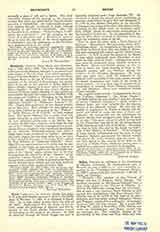

Brunforte, UGOLINO, Friar Minor and chronicler, born c. 1262; died c. 1348. His father Rinaldo, Lord of Sarnano in the Marches, belonged to an ancient and noble family of French origin, from which sprang the famous Countess Matilda. Ugolino entered the Order of Friars Minor at the age of sixteen and served his novitiate at the convent of Roccabruna, but passed most of his life at the convent of Santa Maria in Monte Giorgio, whence he is often called Ugolino of Monte Giorgio. In 1295 he was chosen Bishop of Abruzzi (Teramo) under Celestine V, but before his consecration the pope had resigned and Boniface VIII who suspected Ugolino as belonging to the Zelanti annulled the appointment (see Bull “In Supremae Dignitatis Specula” in “Bullarium Francis.”, IV, 376). Nearly fifty years later he was elected provincial of Macerata. Most scholars are now agreed on fixing upon Ugolino as the author of the “Fioretti” or “Little Flowers of St. Francis” in their original form. For recent research has revealed that this classic collection of narratives, which forms one of the most delightful productions of the Middle Ages, or rather the fifty-three chapters which form the true text of the “Fioretti” (for the four appendixes are additions of later compilers) were translated into Italian by an unknown fourteenth-century friar from a larger Latin work attributed to Ugolino. Although this Latin original has not come down to us, we have in the “Actus B. Francisci et Sociorum Ejus”, edited by Paul Sabatier in “Collection d’Etudes” (Paris, 1902, IV), an approximation to it which may be considered on the whole as representing the original of the “Fioretti”. That Ugolino was the principal compiler of the “Actus” seems certain; how far he may be considered the sole author of the “Fioretti” of the primitive “Actus Fioretti” is not so clear. His labor which consisted chiefly in gathering the flowers for his bouquet from written and oral local tradition appears to have been completed before 1328.
PASCHAL ROBINSON

